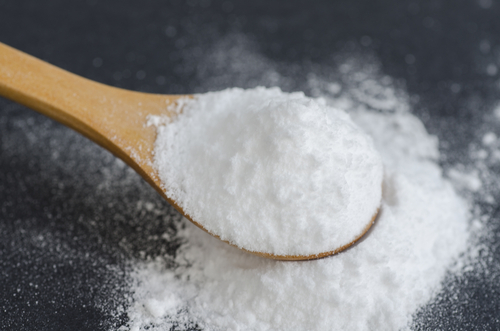Is Sodium Metabisulfite Bad For You?
Also Known As: sodium pyrosulfite
Short answer
Sodium metabisulfite as found in foods is safe for most people. However, people with allergies to sulfites and asthmatics should avoid anything containing sulfites.
A fairly even ratio of beneficial and harmful qualities. Moderation is important. Very general topics that can lean towards both sides of the spectrum will be placed here as well. Rice, for example, can be good or bad depending on the type.
View Full Grading System
Category 'A'
Very healthy and numerous health benefits. Side effects are rare. Things rated an 'A+' are typically necessary for survival (for example, water).
Very healthy and numerous health benefits. A few harmful qualities may be associated, but only under certain circumstances such as an allergic reaction.
Very healthy and numerous health benefits. Harmful qualities may be associated, but aren't usually serious.
It is important to note that even the best things in life can become bad in immoderate amounts. So, although something may be rated an 'A+', overconsumption/overdoing can bring unwanted effects.
Category 'B'
Very beneficial to your health. Things rated a 'B+' may have a few harmful qualities to pay attention to.
Overall beneficial to your health. Things rated a 'B' may have some harmful qualities to pay attention to.
More beneficial to your health than not. However, harmful qualities are most likely associated and shouldn't be overlooked.
The main difference between category 'A' and category 'B' is the harmful qualities typically present in 'B' items. Serious side effects are usually uncommon, but are still possible and should be taken note of.
Category 'C'
Both beneficial and harmful qualities associated. Things rated a 'C+' are typically a bit more on the beneficial side. Still, moderation is important.
A fairly even ratio of beneficial and harmful qualities. Moderation is important. Very general topics that can lean towards both sides of the spectrum will be placed here as well. Rice, for example, can be good or bad depending on the type.
More harmful than beneficial. Side effects are common, especially when consumed/done excessively. Moderation is very important.
Category 'C' usually denotes to both good and bad qualities. When it comes to this category, it is important to keep this word in mind: moderation.
Category 'D'
Harmful to your health. Although benefits may be associated, the bad most likely outweighs the good. Moderation is very important.
Harmful to your health. A few benefits may be associated, but the bad outweighs the good. Moderation is extremely important.
Harmful to your health. Very few, if any, benefits are present. Things in this category should be avoided as much as possible.
Category 'D' is typically for things that are more harmful than beneficial. While consuming/doing something unhealthy once in a blue moon shouldn't hurt, we definitely recommend eliminating 'D' items as a regular part of your routine/diet.
Category 'F'
Category 'F' is for things that fail to bring anything beneficial to the table, and are very harmful to your health. We recommend completely avoiding anything in this category. Long-term side effects of 'F' items are usually very serious.
Category 'N'
'N' stands for neutral. Things placed into this category are generally (a) neither good nor bad for you, or (b) lack the necessary evidence to reach any conclusions.
Long answer
Sodium metabisulfite is an organic salt commonly use in the healthcare and food industries. As a food additive, it is used as a preservative. When used as a health product it is used most often in hair care products. A further common use of sodium metabisulfite is as a disinfectant. So, is it bad for you? Well, that depends entirely on the amount of exposure. The sodium metabisulfite that helps keep your food fresher longer isn't going to harm you. Multiple studies have been done and no carcinogenic effects have been found. There are some studies that indicate sulfite can cause copper levels in the kidney to rise, but any sulfite you are getting from sodium metabisulfite has been diluted far more than what was used in the experiment. In fact, a reaction to sodium metabisulfite will most likely occur only in people who are allergic to sulfite or in people who are exposed to pure sodium metabisulfite.
When pure sodium metabisulfite is ingested, it can cause gastrointestinal damage by releasing sulfurous acid as it comes into contact with stomach acid. Inhaled, sodium metabisulfite is a strong irritant and can cause shortness of breath and coughing. Sodium metabisulfite is also a skin and eye irritant .
Another danger is its decomposition. Although it is noncombustible, when heated, sodium metabisulfite releases poisonous gasses including sulfur oxides. Also, sodium metabisulfite is known to render some medications, particularly those belonging to the epinephrine family, inactive.
While it is safe for most who are not allergic to sulfites, sodium metabisulfite has been shown to make asthma symptoms worse. Furthermore, sulfites are known to destroy thiamine (vitamin B1).
Still, if you are wondering if the sodium metabisulfite in your food will contribute to an early death - the answer is very unlikely. Remember that it isn't pure sodium metabisulfite which is in your food and other chemicals neutralize its toxicity.
Possible short-term side effects
- coughing
-
shortness of breath
-
allergic reaction
-
skin rash
-
itchy eyes
-
exacerbates asthma
Ingredients to be aware of
- sulfur oxide (upon decomposition)
-
sulfite
Healthier alternatives
Please turn your Ad Blocker off to see this content. Thank you!
Thank you for your feedback!
Written by Jeff Volling
Published on: 02-07-2016
Last updated: 12-10-2016
Thank you for your feedback!
Written by Jeff Volling
Published on: 02-07-2016
Last updated: 12-10-2016
 Approved by
Approved by 















